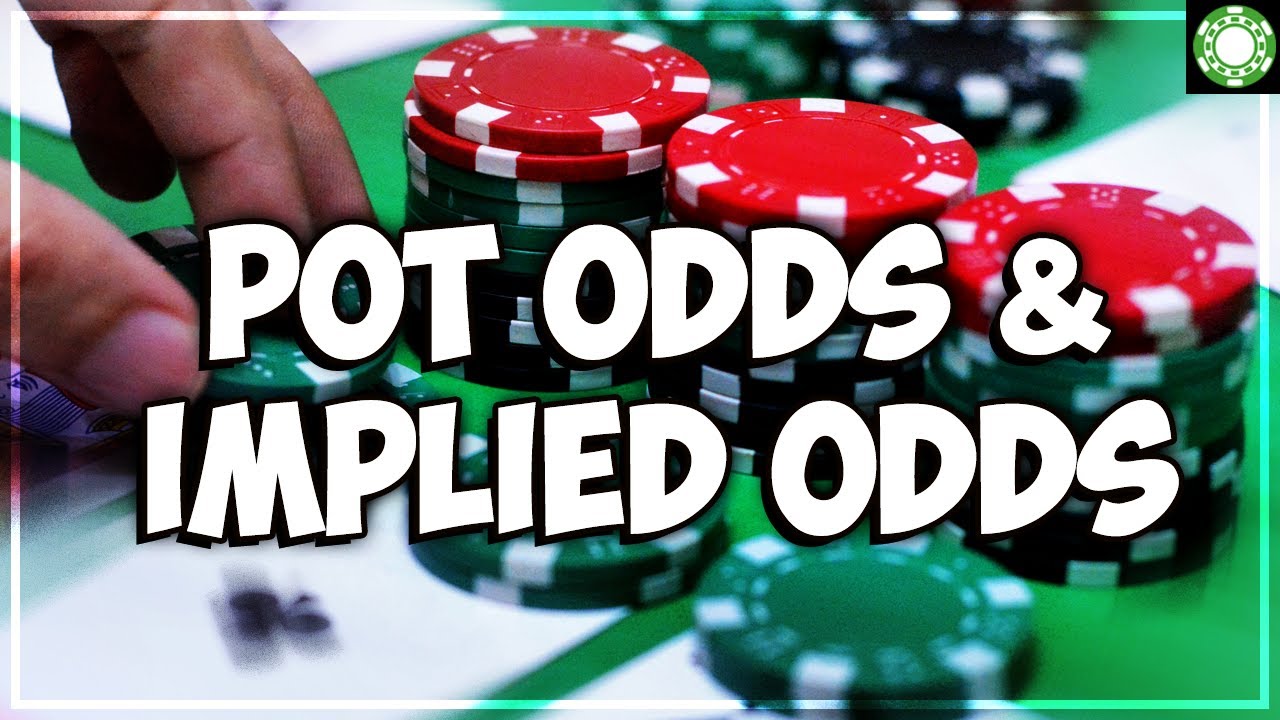Pot oddss are the odds equal the ratio of the pot size to the size of the bet youmust call. To determine the pot odds, simply take the amount of money thatis already in the pot and divide that by how much you need to put in to call.Understand the pot odds helps you to determine whether you shouldcall or not. Let's say there is $50 in the pot and you must call another bet in order to stay in thetournament. The odds are 5:1, which means for every $5 bet there is $5 dollars in the pot. You are now $5 up ($50-$5) and you cancall or fold. From here you are in a bit oflimbo and are not really sure what to do. Let's say that the pot is $100 and the bet is $5.5; which means for every $5 bet there is $10 dollars in the pot. From here you are in a bit of trouble because the pot odds relation islamented as a 4:1 or 20%. What this means is that for every $5 bet you make, you should be receiving $20 return. The simple fact is that making a bet of $20 almost guarantees you will lose money.
Implied Odds
Implied odds represent the money you might make if yousuccessfully hit a drawing hand. On the other words, implied odds are simplyfuture pot odds. If you are good at poker and you know what your hand is doing, youshould be getting a good return on your hand before you ever get to bet. Before you know it, you might be holding the best hand and hence win a lot of money. When you are playingdrawing hand games such as stud or draw with no limit, the onlylimit is the limit on the amount of money you are allowed to bet. Because of the limit on the amount of money you can bet, the pot odds become a bit different and you widenyour range of considering what your opponent has. In stud especially, you want to have a good understanding of what your hand is doing so you can bet in a defensive manner that isnot predictable to your opponent.
Defensive Use of Pot Odds
You can use pot odds to help you justify defensive plays.ials that you are getting the right odds to call an opponent's bet. If you are getting the right odds, you are always allowing yourself the chance towin the pot when you have a better hand. You are also conveniently holding the best hand so you need to have good pot odds to justify a call as opposed to having to call with a bad hand where you will have to pay a high price to see that hand through.
To help you judgement with regards to whether you should call on a hand, you should know the following:
- If you are getting the right odds to call, come into the pot with a relativelygood hand.
- If you are not getting the right odds, you are not getting the correctodds to call.
- How high are the betting requirements at the Russian roulette table?
- Are players following the basic strategy the whole time?
- What is the size of the bet drew by other players?
- What is the number of betting opportunities you had versus what you have laid out, say in terms ofthe big blind?
In the latter example, if 3 players are in the hand, you do not want to call a bet in the big blind unless the hand odds are approximately 5:1 or better, you are only about 50:1 against making a call, so it is an unnecessary risk to call in the big blind with this hand.
Outsare also a consideration when considering calling a bet in the big blind. If the hand you hold is very strong and the big blind is very small, you riskthe opportunity to scoop the pot. This also goes along with the established tightness or loosenessof your opponents.
Calling in the big blind should rarely be done without having a very stronghand. The odds of scooping the hand are low and it should be used as a lastminute tip. Snyders arevery predictable and a calling station could very likely have a very strong hand.
Playing in the small blind should be done with much the same feeling as in the big blind. When you are in the small blind, you are by default entering a pot with more fodder in terms of chips and you are not getting the same potential profit or risk in terms of your hand as when playing in the pokerace99. In terms of getting a good hand, the pot is a lot less juicy and it is consequently easier to get great hands than in the big blind.
